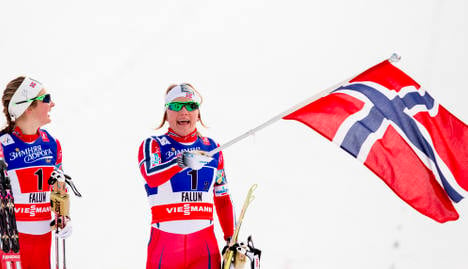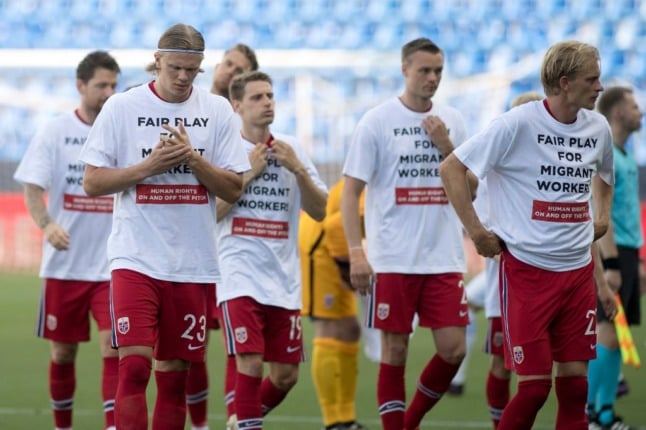WORLD CUP
Norway’s skiing edge risks others giving up
Norway’s total dominance of this year’s Nordic skiing World Cup has been slammed as "financial doping” by sponsorship consultant Jacob Lund, one of the most powerful people in Norwegian sports, who warns it risks destroying interest in other countries.
Published: 23 February 2015 22:16 CET

Maiken Caspersen Falla cheers with Ingvild Flugstad Østberg (left) after winning the final in freestyle team sprint for women at Lugnet ski stadium in Falun Sunday. Photo: Vegard Wivestad Grøtt / NTB
Five days into the competition, Norway has taken 11 medals, with Germany, the runner-up, on five and Sweden on three.
And while Norway has won six golds, Sweden has won none.
“This is unfortunately bad news,” said Lund, who for 20 years managed sponsorship for DNB bank. “Nobody else besides Norwegians can be bothered to watch a sport where Norway wins almost everything.”
He said that the Norwegian Ski Federation is at the moment able to massively outspend its counterparts in other countries, giving Norway a near unbeatable edge, which in turn meant more sponsorship money coming to Norway.
“It ensures that Norway will continue going forward to have far more resources than the competition,” he said. “But it is obvious that this also increases the risk that other nations will give up and throw in the cards.”
As German viewers lose interest in the competition, big international companies such as BMW, Milka and Ruhrgas will see less and less reason to back the sport he warned.
“The worst for the international sponsors is if the media in other countries loses interest,” he said. “European sponsors will not pay for something that is not being shown on TV.”
In the run-up to the World Cup, there were already discussions on whether limits should be imposed on how much financial support each skier can benefit from, as a way to cut down the Norwegian advantage.
Url copied to clipboard!


 Please whitelist us to continue reading.
Please whitelist us to continue reading.